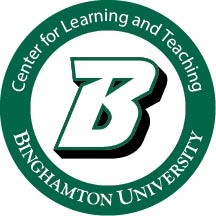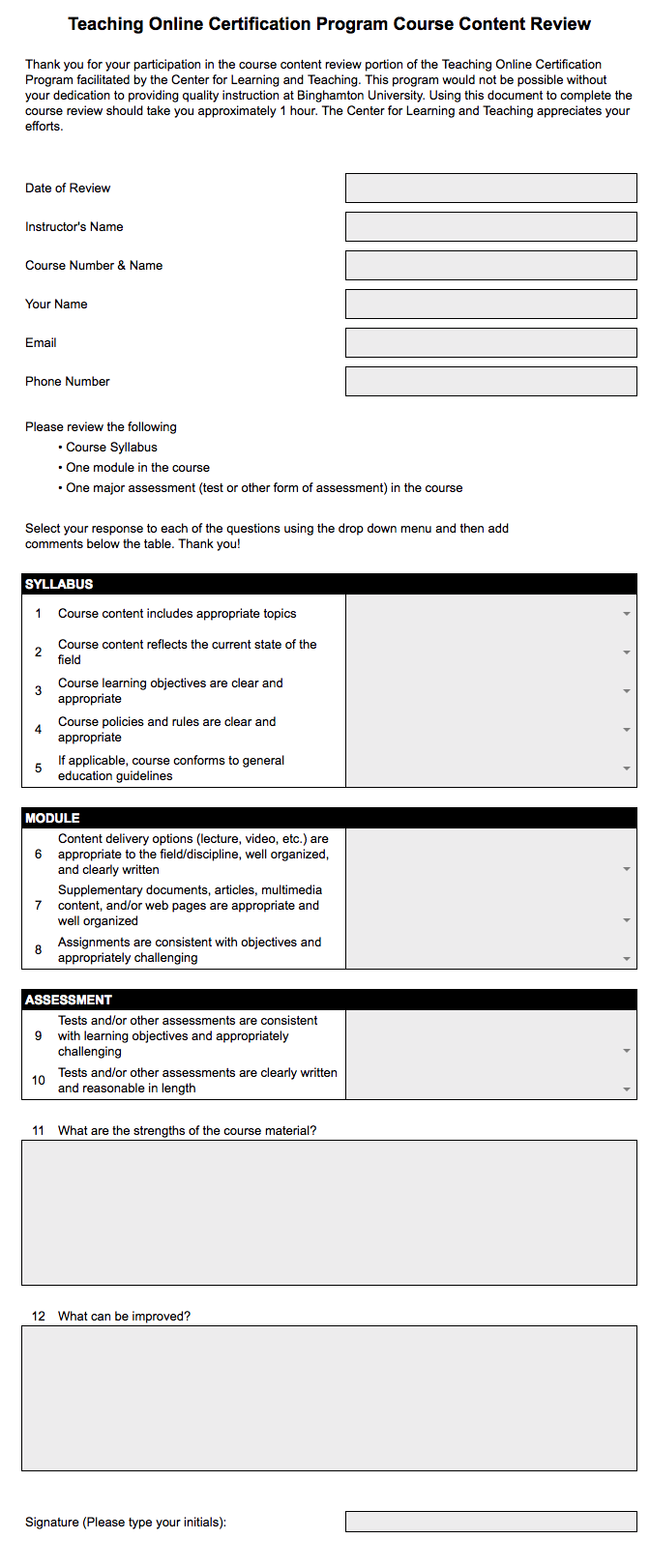OSCQR Institution Showcase
Published by: WCET | 10/4/2018
Tags: Accessibility, Assessment, Course Design, Distance Education, Professional Development, Quality, Student Success, Teaching, WCET, WCET Annual Meeting, WCET Awards, WOW Award
Published by: WCET | 10/4/2018
Tags: Accessibility, Assessment, Course Design, Distance Education, Professional Development, Quality, Student Success, Teaching, WCET, WCET Annual Meeting, WCET Awards, WOW Award
Each week leading up to this year’s WCET Annual Meeting (October 23 – 25), WCET Frontiers will be featuring a post from one of our 2018 WCET Outstanding Work (WOW) Award recipients.
WCET Frontiers will be featuring a post from one of our 2018 WCET Outstanding Work (WOW) Award recipients.
This week we are excited to hear more about the OPEN SUNY Online Course Quality Review Rubric or “OSCQR.” Alexandra Pickett, the Director of Open SUNY Online Teaching, joins us to give a brief overview of the rubric and to share a showcase of institutions that have implemented OSCQR.
Thank you, Alexandra, for today’s great post, and thank you to each institution for sharing your stories with us! Congrats to Open SUNY on their award!
Enjoy the read and enjoy your day,
Lindsey Downs, WCET
The Open SUNY Online Course Quality Review Rubric or “OSCQR” is an online course quality rubric that is openly licensed and free for anyone to use and adapt. It addresses both the instructional design and accessibility of an online course and assists online instructional designers and online faculty to improve the quality and accessibility of their online courses. Our previous post describes the OSCQR Rubric more thoroughly.
For this blog post we wanted to showcase examples of how three different institutions have adopted, adapted, and implemented OSCQR to support their online course quality efforts.
 Great online courses contribute to student success for online learning programs. Monroe Community College (MCC) is a leader in the State University of New York’s Open SUNY program with over 8,000 students taking classes annually. MCC has been offering online courses and programs for over 20 years.
Great online courses contribute to student success for online learning programs. Monroe Community College (MCC) is a leader in the State University of New York’s Open SUNY program with over 8,000 students taking classes annually. MCC has been offering online courses and programs for over 20 years.
Course quality has always been at the root of our success. In the past, this has meant that we have trained faculty on both the technical and pedagogical skills to be successful. We tested the quality of the course using numerous techniques over the years with tools from popular quality assurance models, but the assessments did not secure the buy-in of the faculty and resulted in inconsistent experiences for students. So, we changed our approach.
Instead of focusing on just the “train and go” model, we have introduced a new hybrid model of development where the faculty member, as subject matter expert, works with a team of designers with specific specialties. The experts include a librarian, multimedia designer, instructional designer and accessibility expert. This model is primarily how many larger institutions develop their programs. The difference is that the whole process is based on the OSCQR rubric.
Faculty train on the rubric FIRST instead of using it as a go-live, evaluative tool after course development. Each team member is responsible for a different part of the course based on the rubric and the assessment of the indicator associated with it. Subsequently, an independent evaluator looks at the course with a more over-arching view that ties the project together. In total there are five different specialists working on the course 20 percent of the time as opposed to one person doing 100 percent of the work!
The OSCQR rubric provides the foundation for success for our students. With the faculty actively participating in the process, wholly supported by a strong instructional design team, we have been able to unify our school around quality, accessibility and student success. This has led to a significant cultural change affecting course development and created a unified culture for the award-winning MCC Virtual Campus team.
Lawrence Dugan, Director of eLearning and Instructional Technology
Monroe Community College
 One of the cornerstones of Binghamton University’s support for online instructors is our Teaching Online Certification Program (TOCP), facilitated by the Center for Learning and Teaching (CLT). Beginning in spring of 2015, participants in this program explored current research and practices regarding online learning, as well as related instructional design concepts and technologies. The program has many requirements, including participation in Blackboard LMS Training, completion of an online pedagogy focused course, and individual consultations with a member of the instructional design staff.
One of the cornerstones of Binghamton University’s support for online instructors is our Teaching Online Certification Program (TOCP), facilitated by the Center for Learning and Teaching (CLT). Beginning in spring of 2015, participants in this program explored current research and practices regarding online learning, as well as related instructional design concepts and technologies. The program has many requirements, including participation in Blackboard LMS Training, completion of an online pedagogy focused course, and individual consultations with a member of the instructional design staff.
The final product for the TOCP is a finished online course that is then evaluated using the Open SUNY Course Quality Review (OSCQR) rubric. In true Binghamton spirit, we have customized our version on the OSCQR rubric to meet the needs of our instructors and the values of our institution. Fortunately, the rubric and the dashboard allow for such customization fairly easily.
One of largest additions we made was the introduction of a content rubric. The OSCQR rubric is extremely helpful is assessing online course design, but does not address the content of the course. Because TOCP participants are awarded a stipend for completion, we want to ensure that not only the design of their course meets minimum acceptable quality standards, but that the course content is also appropriate.

The CLT staff does not include experts on all courses taught at the university, so we recruit departmental faculty to assist us. Using an additional tab in the OSCQR rubric Google sheet, a member from a participant’s department, typically the chair, assesses the quality and appropriateness of the content. Admittingly, they often have difficulty with this as they are not familiar with Google sheets and continuously ask how to save and send the sheet back to us. However, their confusion is easier to handle than the 100+ PDFs we received prior the addition of this tab. Because we like to be particular, we also requested the addition of four quality indicators and changes to the wording of another fifteen of those already present.
We are currently in our sixth cohort of the TOCP, which would not be possible without the OSCQR rubric and the dashboard to assist us in our course review process.
Andrea MacArgel, Director of Instructional Design Services
Binghamton University
Our diversity is at the core of the University of Massachusetts Boston (UMass Boston). We are a thriving, growing campus passionate about life and learning. In order to meet the needs of our student population, UMass Boston offers an ever-growing selection of online courses and programs through the College of Advancing and Professional Studies. Online courses offer our learners the flexibility to maintain vibrant lives while pursuing their educational goals.
Instructional designers from eLearning & Instructional Support (eLIS) searched for a quality rubric that included a comprehensive strategy in multiple areas of review including; accessibility, instructional methods, and interaction. After attending a SUNY OSCQR webinar and conference presentation, the team contacted SUNY to learn more. Very quickly eLIS developed a working relationship with SUNY and began a deep dive into the OSCQR rubric. We discovered that OSCQR is a quality rubric tool which supports an inclusive approach to course development and restructuring.
SUNY’s flexibility, under Creative Commons, allowed our team to customize the rubric to better match our established review process. In addition, SUNY allows universities to provide feedback and additional resources, making it an exceptional collaborative quality review system. Many of our proposed suggestions have been incorporated into the OLC oscqr.org.
OSCQR has unequivocally changed the way we approach our work. Engaging the OSCQR rubric goes well beyond the quality process. It offers a mechanism which supports a positive cultural change. OSCQR course development and refresh offers a strong research base that also facilitates impactful community building between designers and faculty, while supporting a constructive and continuous feedback loop.
We continue to integrate the OSCQR standards into all levels of eLIS services, from one-on-one consultation to course quality review, as well as new online faculty training. OSCQR has provided the institution a chance to bring multiple strategic priorities together under one framework, helping to create a movement of instructional awareness and engagement.
The University of Massachusetts Boston is nationally recognized as a model of excellence for urban public universities. UMass Boston’s diverse student body provides a global context for student learning, and its location in a major U.S. city provides connections to employers in industries such as finance, health care, technology, service, and education, offering students opportunities to gain valuable in-school experience via internships, clinicals, and other career-related placements.
Gene Shwalb, Manager of eLearning and Instructional Support
UMass Boston
__________________________________________________________________________________
Thank you to each of these institutions for discussing your use of OSCQR!
We are very pleased to have OSCQR recognized with a 2018 WOW award from WCET. OSCQR was previously recognized by the Online Learning Consortium (OLC) in 2015 as an effective practice and received the 2016 National University Technology Network NUTN Distance Education Innovation Award. Later in 2016, OSCQR was adopted by OLC and is featured as the online course quality rubric in their suite of Online Quality Scorecards. The OSCQR rubric and process are currently being used by 56 SUNY institutions and 800+ non-SUNY individuals, institutions, and organizations. Please visit OSCQR.org for more information.

Alexandra M. Pickett
Director, Open SUNY Online Teaching
The State University of New York
